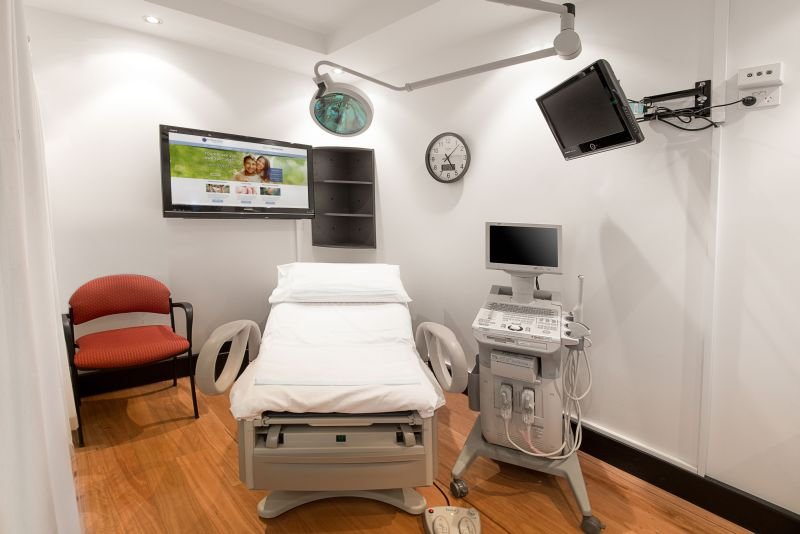Advancements in technology have revolutionized many fields of medicine, and fertility treatment is no exception. Modern fertility centers, including those in Bihar, are utilizing cutting-edge technologies to improve diagnostic accuracy, enhance treatment options, and significantly boost success rates for couples and individuals trying to conceive. The integration of new technologies into fertility practices has transformed the landscape of reproductive healthcare, making treatments more efficient and accessible to patients.
In this article, we will explore the pivotal role of technology in modern fertility centers and how these innovations are helping patients at a Fertility Center In Bihar achieve their dream of parenthood.
1. Enhanced Diagnostic Tools for Precise Evaluations
One of the most critical aspects of fertility treatment is identifying the underlying causes of infertility. This is where technology plays a vital role. Some of these technologies include:
- Hysterosalpingography (HSG): This X-ray procedure helps evaluate the condition of the fallopian tubes and uterus. It is often used to check for blockages or structural issues that could prevent pregnancy. This helps identify potential male factor infertility issues with precision.
The detailed information they provide enables fertility specialists to craft a more targeted treatment plan, maximizing the chances of success.
2. In Vitro Fertilization (IVF) and Laboratory Innovations
Modern IVF laboratories now utilize sophisticated techniques to ensure optimal conditions for fertilization and embryo development. Some key technological innovations in IVF include:
- Time-Lapse Imaging: Embryologists now use time-lapse imaging systems to monitor embryo development in real-time. This improves the chances of a successful pregnancy. This reduces disturbances and helps select the best-quality embryos for implantation.
- ICSI (Intracytoplasmic Sperm Injection): This technique involves injecting a single sperm directly into an egg to achieve fertilization. It is particularly helpful in cases of male infertility where sperm motility or count is low. ICSI has been a game-changer for many couples facing male factor infertility.
3. Genetic Screening and Testing
Genetic factors play a crucial role in fertility and pregnancy outcomes. Technology has now made it possible for fertility centers to conduct advanced genetic screenings, reducing the risk of hereditary diseases and improving the chances of a healthy pregnancy. Some of the key genetic technologies used in fertility centers include:
- Preimplantation Genetic Testing (PGT): This technology allows doctors to screen embryos for genetic abnormalities before implantation. This increases the chances of a successful pregnancy and reduces the risk of miscarriage. It has become a routine part of fertility care for patients undergoing treatments like IVF.
4. Fertility Preservation: Egg and Sperm Freezing
Fertility preservation has become an increasingly popular option, particularly for individuals who are not yet ready to start a family or for those undergoing medical treatments that may impact fertility, such as cancer therapy. Egg and sperm freezing technologies have advanced considerably, allowing for long-term storage without compromising the quality of the reproductive cells.
- Vitrification: This is a flash-freezing technique that rapidly cools eggs or embryos to sub-zero temperatures, preventing ice crystal formation that can damage the cells. Vitrification has revolutionized the success of egg freezing, making it a viable option for women who want to preserve their fertility for future use.
5. Artificial Intelligence and Data Analytics in Fertility Treatment
AI can analyze vast amounts of data from past IVF cycles and patient records to identify patterns and make more accurate predictions about which embryos are most likely to result in a successful pregnancy.
This level of personalization improves the chances of a positive outcome and reduces the time it takes to achieve pregnancy. Artificial intelligence (AI) and data analytics are transforming fertility treatment, offering personalized and efficient solutions for patients. This level of customization improves patient outcomes and reduces the number of IVF cycles needed to achieve pregnancy.
Data analytics plays a key role in identifying patterns and trends across numerous fertility cases. By analyzing large sets of medical data, it helps predict potential obstacles to conception and refines treatment plans accordingly. This combination of AI and data analytics allows fertility centers to offer more precise, evidence-based care.
For couples seeking treatment at a fertility center in Bihar, AI-driven fertility solutions offer new hope by improving the chances of success and minimizing the emotional and financial burden of infertility treatments.
Also Read: Uterus Meaning In Hindi
Conclusion:
The role of technology in modern fertility centers cannot be overstated. From advanced diagnostic tools and IVF innovations to genetic testing, fertility preservation, and AI-driven treatments, technology is at the heart of today’s fertility care. At a fertility center in Bihar, these cutting-edge technologies are helping individuals and couples overcome a wide range of fertility challenges, making parenthood more accessible to everyone.
Choosing a fertility center that leverages these advanced technologies is essential for achieving the best possible outcomes.



